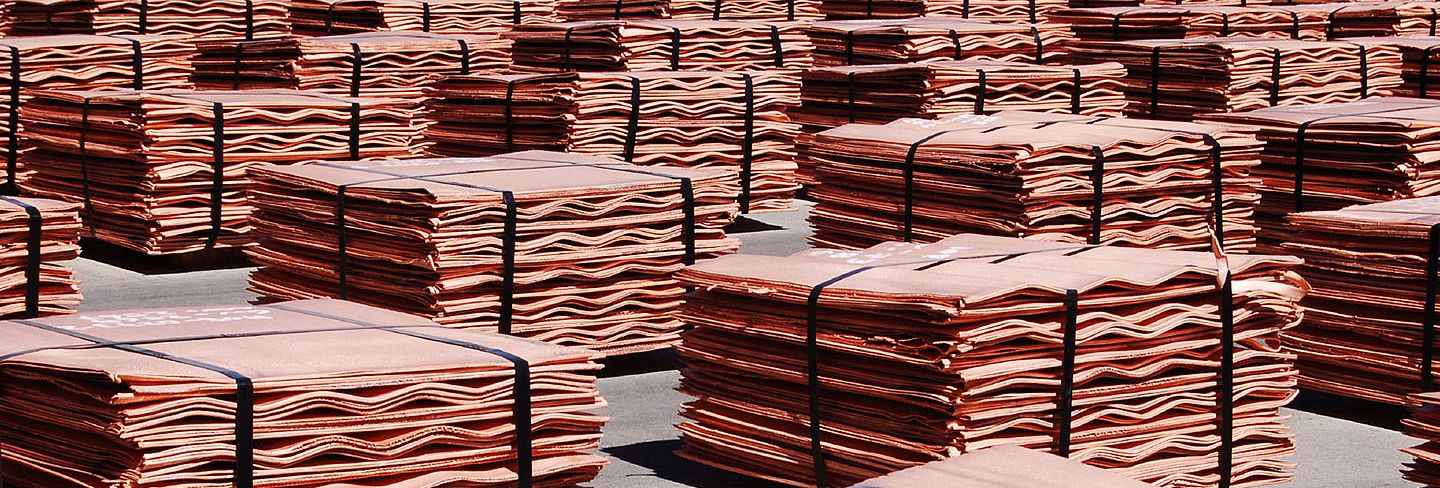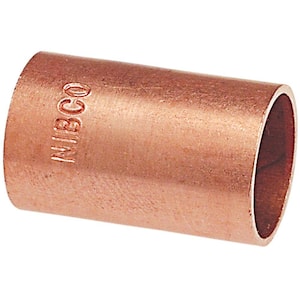Boost Your Workmanship with High-Performance Copper Products for Artisans
Boost Your Workmanship with High-Performance Copper Products for Artisans
Blog Article
Checking Out the Diverse Applications of Copper Products in Modern Industries
Copper items have actually developed themselves as indispensable parts across a myriad of modern-day markets, mostly because of their exceptional conductivity, malleability, and resistance to rust. From improving the effectiveness of electrical systems to playing a crucial role in renewable resource technologies, the versatility of copper is evident. Its recyclability placements it as a sustainable choice in manufacturing and electronics. As sectors progressively focus on innovation and sustainability, the diverse applications of copper necessitate a closer assessment, particularly concerning their possible influence on future technological innovations and ecological practices.
Electric Applications of Copper
Copper is a vital product in the electrical market, representing roughly 60% of the complete need for non-ferrous steels globally - Copper Products. Its remarkable electrical conductivity, which is virtually twice that of aluminum, makes it the preferred option for a vast array of electric applications. From circuitry systems in business and household buildings to high-voltage power transmission lines, copper guarantees performance and integrity in electricity distribution
Along with electrical wiring, copper is essential to the manufacturing of electric components such as generators, transformers, and motors. These components utilize copper's thermal conductivity and malleability, essential for warmth dissipation and effective efficiency. Copper's resistance to corrosion boosts the lifespan and resilience of electrical systems, making it an affordable solution in the lengthy term.
The development of renewable energy sources, such as solar and wind power, has further enhanced the demand for copper in electrical applications. As markets transition in the direction of sustainable power remedies, copper's role ends up being a lot more crucial. Overall, the versatility and performance attributes of copper solidify its standing as a cornerstone material within the electric sector, driving technology and performance across numerous applications.
Pipes and Piping Solutions
In modern-day pipes systems, the selection of products significantly affects both functionality and longevity. Copper has emerged as a recommended choice as a result of its unique residential or commercial properties, consisting of rust resistance and antimicrobial attributes. These qualities ensure that copper piping continues to be sturdy and secure for transporting safe and clean water, a crucial factor to consider in domestic and commercial applications.
Among the crucial advantages of copper in pipes is its capability to stand up to heats and pressures, making it ideal for a selection of applications, from warm water systems to heating and cooling networks. In addition, copper's adaptability permits for easier installation in intricate piping layouts, minimizing the danger of leaks and failings.
An additional noteworthy advantage is copper's long life expectancy, typically going beyond 50 years with proper upkeep. This long life not just reduces replacement prices however additionally adds to lasting techniques by lowering waste. Copper's recyclability straightens with modern-day ecological criteria, advertising a circular economy within the pipes industry.
Copper in Renewable Resource
The versatility of copper prolongs past pipes applications, playing a crucial duty in the renewable resource industry. Its outstanding electrical and thermal conductivity makes it a necessary material in the manufacturing and circulation of sustainable power sources, particularly solar and wind power. In photovoltaic panels, copper is used in solar batteries and electrical wiring, promoting reliable power conversion and transmission. Its resistance to rust ensures long-lasting efficiency, which is important for maximizing power outcome gradually.

Additionally, as the international need for electric cars (EVs) rises, copper's duty in battery systems and billing framework comes to be a lot more considerable. The material's advice capability to perform electricity efficiently is indispensable to the performance of EV batteries, improving range and charging speed.
Copper's Function in Electronics
Electronic devices making relies heavily on copper's exceptional homes, especially its high electrical conductivity and thermal effectiveness. These characteristics make copper an excellent selection for a vast array of digital elements, consisting of ports, circuit card, and electrical wiring. The metal's capability to successfully transfer electrical signals makes certain very little energy loss, which is essential in high-performance digital tools.
Additionally, copper's thermal conductivity plays a substantial role in heat dissipation, shielding delicate components from overheating. This is specifically important in modern-day electronics, where compact designs cause raised warm generation. Copper is also preferred for its malleability and ductility, allowing it visite site to be quickly formed into detailed styles that fulfill the needs of advanced electronic applications.
With the increase of customer electronic devices, telecommunications, and electrical automobiles, the need for copper in the electronics industry proceeds to expand. Thus, copper continues to be a cornerstone material in the ever-expanding field of electronics.
Cutting-edge Utilizes in Production

One remarkable application remains in additive manufacturing, where copper-based products are employed in 3D printing procedures. This enables the creation of lightweight elements and intricate geometries, particularly in the aerospace and automotive markets. In addition, copper's thermal conductivity makes it a suitable selection for heat exchangers, boosting performance in commercial cooling systems.
Additionally, the surge of smart manufacturing has seen the incorporation of copper in IoT tools, where its conductive capabilities support advanced picking up modern technologies. In the world of renewable energy, copper is essential in the manufacturing of photovoltaic panels and visit this site right here wind turbines, assisting in extra efficient energy conversion and distribution.
As industries pursue sustainability and advancement, copper's convenience and efficiency remain to place it as a critical material, driving advancements in manufacturing and contributing to the development of smarter, more efficient products.
Conclusion
The integral duty of copper in renewable energy and its important feature in electronics emphasize its value in progressing lasting practices. Jointly, these applications illustrate copper's essential contribution to technical progression and commercial effectiveness in contemporary society.
From improving the performance of electrical systems to playing an essential duty in renewable power modern technologies, the adaptability of copper is evident. As markets significantly prioritize advancement and sustainability, the diverse applications of copper require a closer exam, particularly regarding their possible impact on future technological innovations and ecological practices.
The growth of sustainable power resources, such as solar and wind power, has actually even more boosted the need for copper in electric applications. On the whole, the adaptability and performance characteristics of copper strengthen its standing as a cornerstone material within the electrical industry, driving advancement and effectiveness across various applications.
The flexibility of copper prolongs past plumbing applications, playing a vital function in the eco-friendly power market.
Report this page